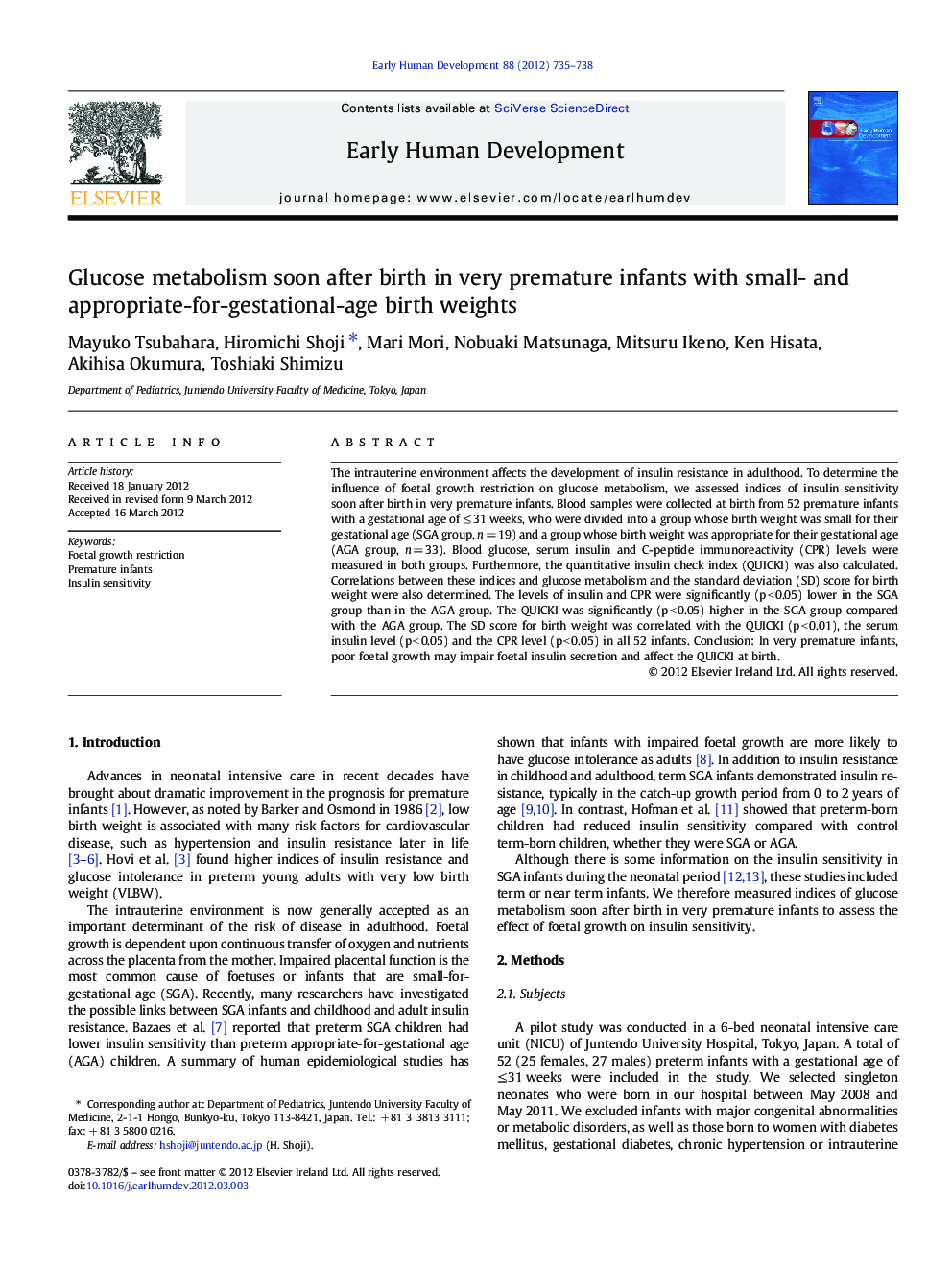| Article ID | Journal | Published Year | Pages | File Type |
|---|---|---|---|---|
| 6172040 | Early Human Development | 2012 | 4 Pages |
The intrauterine environment affects the development of insulin resistance in adulthood. To determine the influence of foetal growth restriction on glucose metabolism, we assessed indices of insulin sensitivity soon after birth in very premature infants. Blood samples were collected at birth from 52 premature infants with a gestational age of â¤Â 31 weeks, who were divided into a group whose birth weight was small for their gestational age (SGA group, n = 19) and a group whose birth weight was appropriate for their gestational age (AGA group, n = 33). Blood glucose, serum insulin and C-peptide immunoreactivity (CPR) levels were measured in both groups. Furthermore, the quantitative insulin check index (QUICKI) was also calculated. Correlations between these indices and glucose metabolism and the standard deviation (SD) score for birth weight were also determined. The levels of insulin and CPR were significantly (p < 0.05) lower in the SGA group than in the AGA group. The QUICKI was significantly (p < 0.05) higher in the SGA group compared with the AGA group. The SD score for birth weight was correlated with the QUICKI (p < 0.01), the serum insulin level (p < 0.05) and the CPR level (p < 0.05) in all 52 infants. Conclusion: In very premature infants, poor foetal growth may impair foetal insulin secretion and affect the QUICKI at birth.
